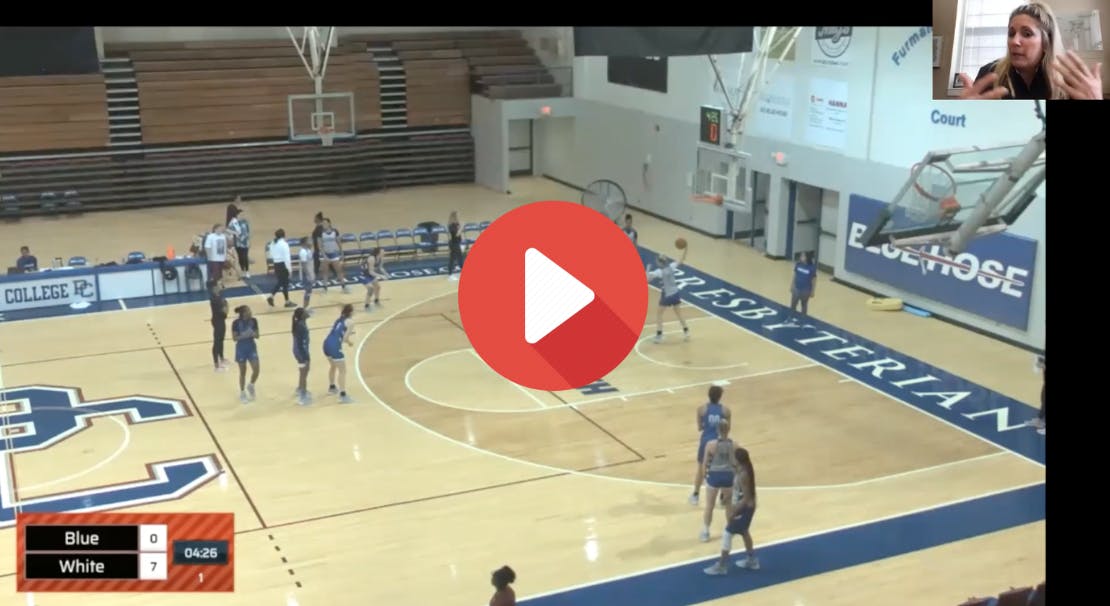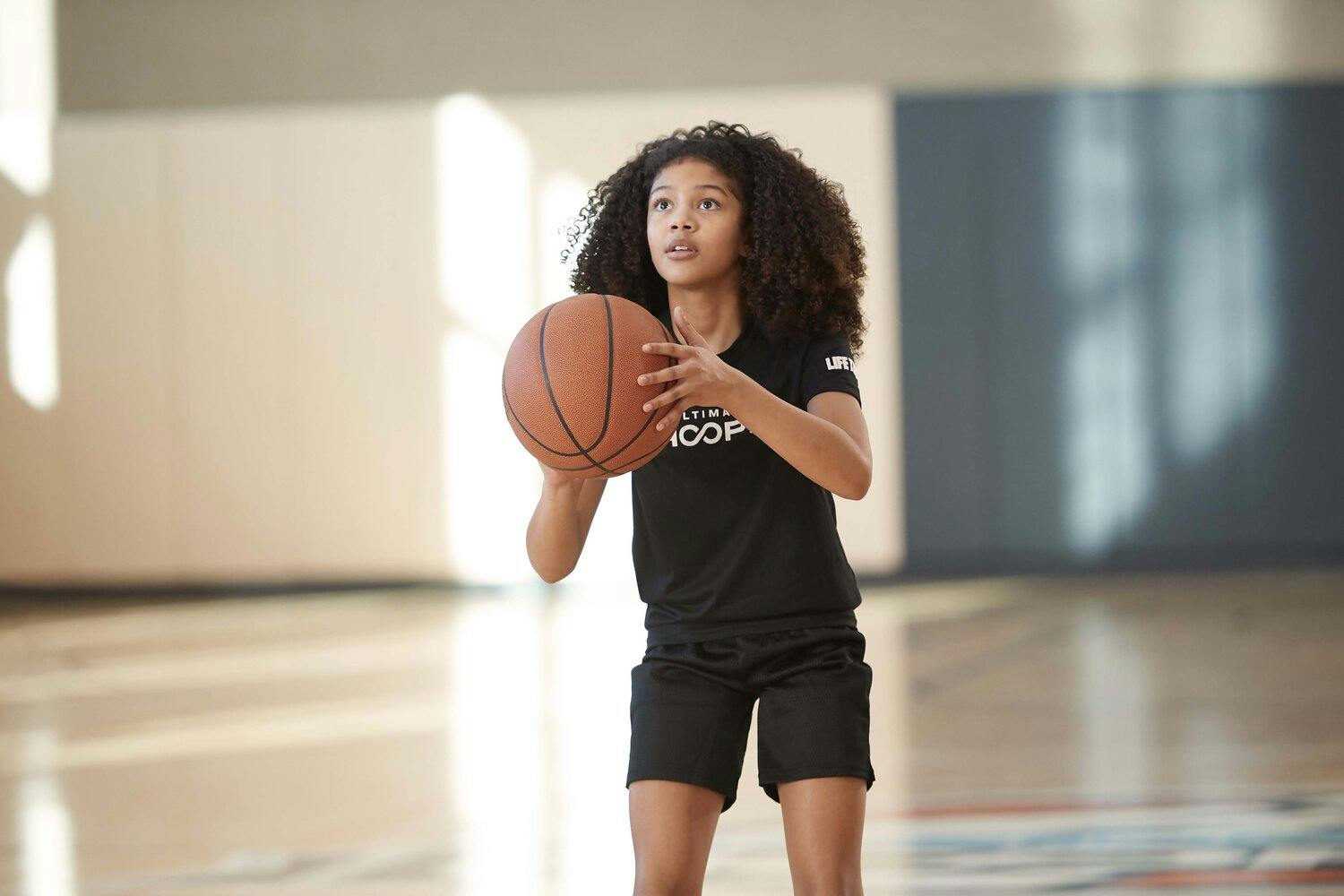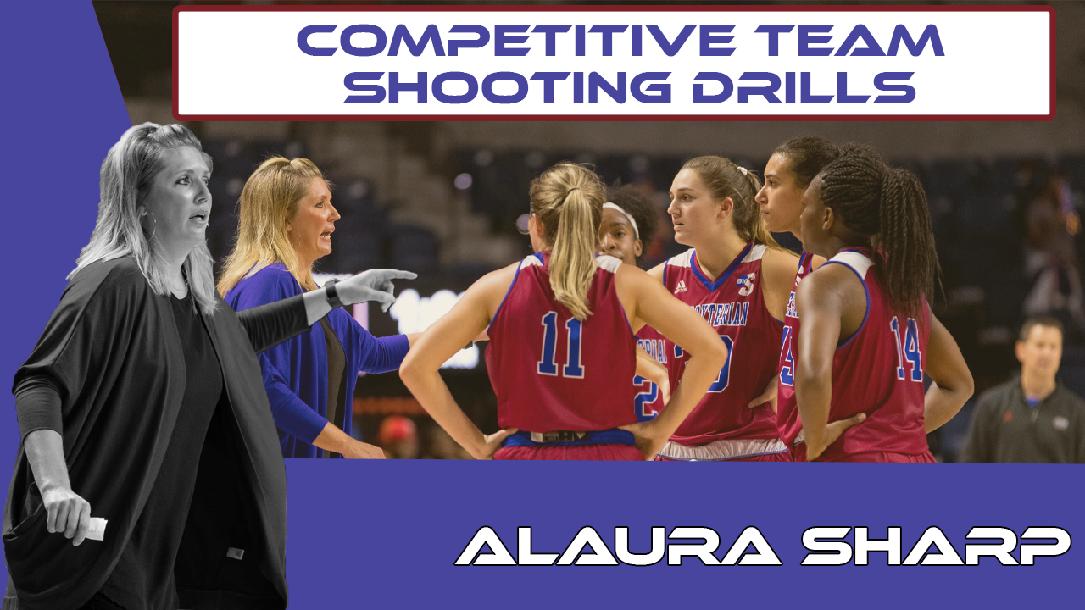Three Competitive Shooting Drills For Your Basketball Team
- By Grant Young
It's important for coaches to be able to switch things up when running a practice. Things can get redundant when basketball practice planning, and ultimately it can become a bit boring for coaches and players alike. This is why adding a competitive twist to practice can really elevate team morale and foster excitement that translates into success in games.
Coaches can incorporate competitive shooting drills into their practices to not only strengthen shooting, but also boost rebounding, and increase conditioning. While any wise coach will want to kill multiple birds with one stone (so to speak) when constructing their team’s practices, figuring out the most efficient and effective way to do so can seem daunting.
Luckily that’s exactly what coach Aluara Sharp has done.
Coach Sharp is the head Women's Basketball Coach at Appalachian State, a job she started in April 2024. Prior to that, Coach Sharp spent six seasons as the head coach at Presbyterian College (PC). Under Coach Sharp’s leadership, PC finished fifth in the regular season standings and earned a first-round bye in the Big South Conference Championship for the first time since 2017-18. The 2019-20 team increased its win total by five games and advanced to the Big South Championship quarterfinal round for the second time under Sharp's leadership.
Putting together competitive shooting drills for her team has been a cornerstone of Coach Sharp’s success. And her ‘Competitive Team Shooting Drills’ course will teach you how to Implement competitive shooting drills into your practice plan and bring out the best in your team, both individually and as a unit.
Regardless of the basketball level you’re coaching at, your players’ improvement from these drills will translate onto the court and boost their confidence in their ability to shoot the ball, which could spell the difference between success and despair during your next season.
Rapid Fire Shooting
The first competitive team shooting drill that Coach Sharp recommends for coaches is what she calls the ‘Rapid Fire Shooting’ drill.
This drill will start with three lines: a passing line at the wing or at the top of the key, a shooting line in the corner (either behind the three-point line or at mid-range) and a rebounding line on the block.
The passer’s line will start with the ball, deliver the pass to the shooter in the corner, then follow their pass and get in the shooting line. Upon receiving the pass, the shooter will take a shot. Regardless of whether the shot is made or missed, the shooter will then get in the rebounding line. And when the rebounder secures the ball they will then outlet it to the passing line, and the drill restarts.
The key here is that this drill will take place on both sides of the court, and you have an equal amount of players on each side. After each player gets a shot up at each spot, both sides will tally their total makes and the winning side will get a point.
After doing this in five different locations, the team with the most points wins and gets to skip conditioning or some other similar reward.
There can also be bonuses or an additional point given to the team who completes their entire round of shots the fastest, which incentivizes fast passing, shooting, and rebounding.
Coaches could also do it so that whichever team gets to five made shots in every location first wins, which is another way to prioritize speed and timing in this drill.
Blue Hose Shooting

Another competitive shooting drill Coach Sharp loves is called ‘Blue Hose Shooting’, which she took from a former coaching job at Lousiana Tech.
The goal of this drill is that the team must have 90 three-point shots in five minutes. While this may sound impossible, the drill’s structure will reveal why it’s not so difficult as it initially sounds.
There will be three different lines (Coach Sharp has it with one on either wing and another at the top of the key, but this could also work with a line or two at the corners.) Once a person at the front of their line takes a shot, they go and grab their own rebounds before passing it to the line that’s to their left. They’ll then go and join that line.
This drill is excellent because it blends needing speed and patience. If every shooter on the team is rushing their shots in order to get as many shots up as possible, there’s no way they’ll make enough because their form will suffer. But if a player mimics the (efficient, but not rushed) pace at which they shoot in a game and then hustles to get their rebound, this will allow them to make the 90 shots in five minutes.
Of course, making 90 three points shots will be impossible for any youth basketball team. So adjust these distances, shots, and timing to whatever level your team is at.
Skip Shooting
A third competitive team shooting drill Coach Sharp swears by is the Skip Shooting drill.
This drill is going to require either three or four balls, and it emphasizes skip passes, which is a pass that goes directly from one player to another, usually traveling relatively long distances and skipping over any teammates in between.
It will initially start with two lines, one at a wing and another at the opposite corner. The balls will start with the wing lines, who will throw an overhead skip pass to the corner shooter. The shooter will catch the pass, take the shot, and then follow the shot. Once they secure the rebound then they will outlet it to the wing line.
Try doing this for a set number of shots or minutes before moving to a different location and trying the same there.




No comments:
Post a Comment